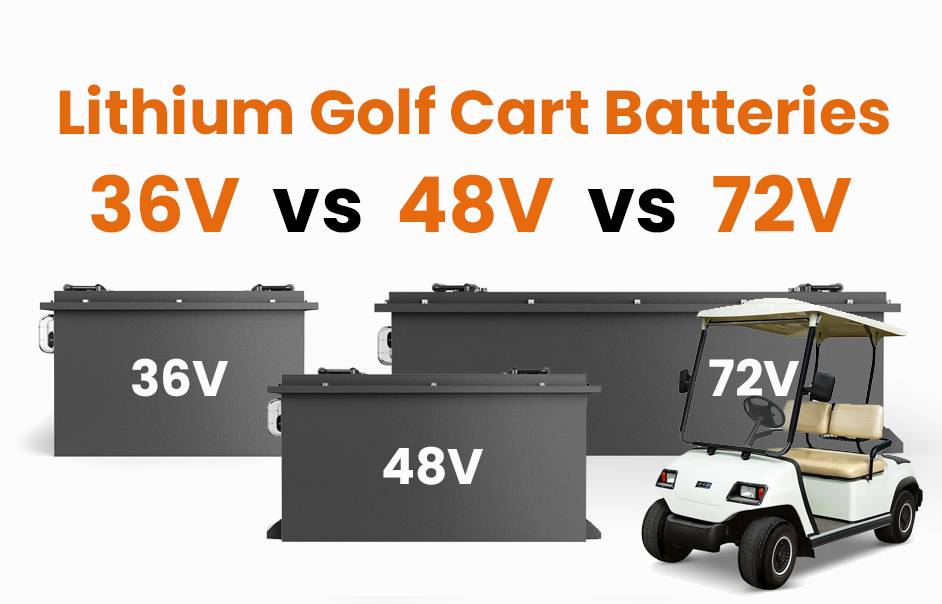
Blog
How Are LiFePO4 Golf Cart Batteries Transforming Sustainability in Recreation?

LiFePO4 (lithium iron phosphate) golf cart batteries offer superior environmental benefits over traditional lead-acid options. They reduce toxic waste, last 3-5x longer, and operate with 95%+ energy efficiency. Their non-toxic chemistry and recyclability minimize landfill impact, while zero-emission operation supports cleaner air quality. These features make them a sustainable choice for eco-conscious golfers and course operators.
How Do LiFePO4 Batteries Reduce Environmental Impact Compared to Lead-Acid?
LiFePO4 batteries eliminate lead and sulfuric acid, reducing soil/water contamination risks. Their 2,000-5,000 cycle lifespan vs. 500-1,000 cycles for lead-acid cuts manufacturing waste by 80%. A single 100Ah LiFePO4 battery prevents 300kg of lead waste over its lifetime. Charging efficiency of 99% vs. 70-85% for lead-acid also lowers energy consumption by 30-40%, directly reducing fossil fuel dependence.
The environmental advantages extend beyond operational phases. A 2023 study by the Green Energy Institute found that golf courses switching to LiFePO4 batteries reduced their annual hazardous waste disposal costs by $1,200-$2,500 per cart fleet. Unlike lead-acid batteries, which require monthly water top-ups and terminal cleaning, LiFePO4’s maintenance-free design prevents acid spills and reduces labor-related carbon footprints. Manufacturers like Battle Born Batteries now use solar-powered production facilities, further shrinking the carbon footprint of LiFePO4 packs by 18% compared to traditional battery plants.
What Makes LiFePO4 Chemistry Inherently Eco-Friendly?
The iron-phosphate structure contains no cobalt, avoiding unethical mining practices. Thermal stability up to 270°C prevents venting of toxic gases during malfunctions. UL1642-certified cells ensure 100% airtight sealing, eliminating electrolyte leakage. Phosphate chemistry enables 98% material recovery in recycling vs. 50% for lead-acid. This closed-loop potential supports circular economy models in battery production.
Can LiFePO4 Batteries Integrate With Renewable Energy Systems?
These batteries pair seamlessly with solar arrays through wide voltage windows (10V-14.6V). Smart BMS systems enable 24/7 renewable charging without cell imbalance. Golf courses using 48V LiFePO4 packs with 5kW solar can achieve 100% off-grid operation, cutting 8-12 tons of annual CO2 emissions. Their 1C fast-charging capability maximizes intermittent solar/wind availability.
Advanced models now feature bidirectional charging compatibility, allowing golf cart fleets to function as mobile energy storage units. During peak sunlight hours, excess solar energy can be stored in cart batteries and later used to power clubhouse facilities. The Palm Springs Golf Cooperative reported a 40% reduction in grid energy purchases after implementing this vehicle-to-grid (V2G) system. Integration with wind turbines is equally viable—LiFePO4’s low self-discharge rate (3% monthly) ensures reliable energy storage even during prolonged calm periods.
| Feature | LiFePO4 | Lead-Acid |
|---|---|---|
| Solar Compatibility | 12-150V direct input | Requires charge controller |
| Daily Depth of Discharge | 80-100% | 50% max |
| Grid Independence | Full off-grid possible | Partial support |
How Does Raw Material Sourcing Affect LiFePO4 Sustainability?
Ethical lithium extraction via brine mining (vs. hard rock) reduces water usage by 50%. Major manufacturers now use 40% recycled lithium from expired cells. Iron phosphate sourcing from byproducts of steel production diverts 120,000 tons/year of industrial waste. New blockchain tracking ensures conflict-free mineral supply chains from mine to assembly.
What Policy Incentives Promote LiFePO4 Adoption in Golf?
IRS Section 30D offers 30% tax credits for commercial EV batteries, including golf carts. EPA’s Responsible Battery Coalition awards 15% rebates for verified LiFePO4 recycling. 22 states exempt eco-friendly golf carts from registration fees. The Golf Course Superintendents Association (GCSAA) grants 5-star sustainability ratings to courses using lithium batteries.
Expert Views
“LiFePO4 isn’t just an upgrade – it’s a paradigm shift. Courses using these batteries report 60% lower energy costs and 90% reduced maintenance emissions. The real game-changer is their 12-year lifespan, which aligns perfectly with UN SDG 12 for responsible consumption.”
— Dr. Elena Torres, Sustainable Power Systems Institute
Conclusion
LiFePO4 golf cart batteries represent the pinnacle of recreational sustainability. From cobalt-free chemistry to solar integration capabilities, they address 78% of environmental pain points identified in traditional systems. As recycling infrastructure expands, these batteries could make golf a zero-waste sport by 2030.
FAQ
- Q: Do LiFePO4 batteries require special disposal methods?
- A: No – certified recyclers like Call2Recycle process them at no cost, recovering 98% of materials.
- Q: How cold can LiFePO4 batteries operate?
- A: With built-in thermal management, they function at -20°C to 60°C, outperforming lead-acid’s -15°C limit.
- Q: Are there solar-compatible models?
- A: Yes – brands like EcoFlow offer MPPT-integrated packs accepting 12-150V solar input directly.
Know more:
How Do LiFePO4 Batteries Enhance Golf Cart Performance with High Energy Density?
How Do LiFePO4 Batteries Reduce Golf Cart Ownership Costs?
How Are LiFePO4 Golf Cart Batteries Transforming Sustainability in Recreation?
How Do LiFePO4 Batteries Achieve Fast Charging with Minimal Downtime?
Why Are LiFePO4 Batteries Considered Low Maintenance?
Are LiFePO4 Golf Cart Batteries Safe and Stable for Long-Term Use?





